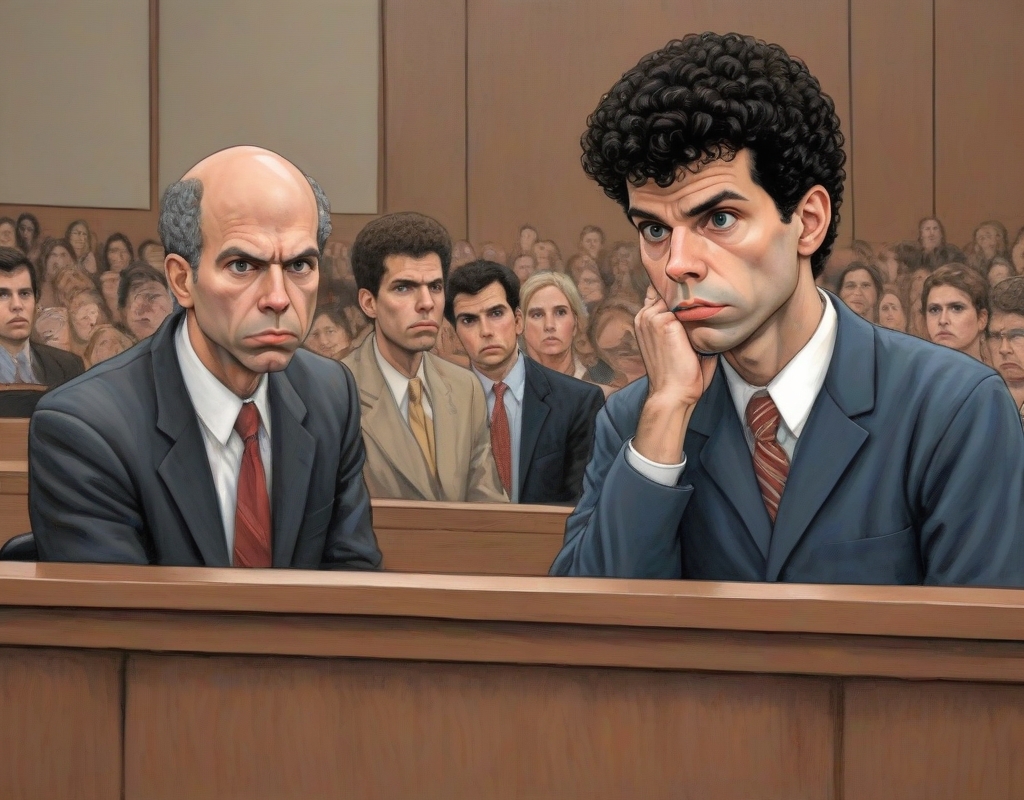The saga of the Menendez brothers, Lyle and Erik, who were convicted of murdering their parents in 1989, continues to captivate and polarize public opinion. Decades after their conviction, where they received life sentences without the possibility of parole, new claims of abuse by their father have rekindled interest and controversy over their case.
#### Events Leading to Their Arrest
On August 20, 1989, the Menendez brothers made a frantic 911 call about the brutal death of their parents, Jose and Kitty Menendez, who were found shot multiple times in their upscale Beverly Hills home. Initially, the brothers were not considered suspects. However, suspicion grew as the investigation deepened, leading to their arrest. They defended their actions by claiming they were long-term victims of physical, emotional, and sexual abuse at the hands of their father, Jose, and feared for their lives.
#### Their Initial Trial
The trial, which began in July 1993, was highly publicized. The brothers testified about the severe abuse they allegedly endured, with Lyle detailing sexual abuse starting from a very young age and Erik describing the psychological impact. Their defense argued that the murders were a form of self-defense from perceived imminent threat.
Contrastingly, the prosecution painted a picture of greed, suggesting the murders were carried out to gain access to the parents’ substantial wealth, estimated at $14 million. Despite their defense, the brothers were convicted of first-degree murder. They escaped the death penalty but were sentenced to life without parole.
#### Introduction of New Evidence
A resurgence of action in the case has come about with the Menendez brothers challenging their sentences. They’ve submitted a habeas petition, highlighting new evidence and ongoing claims of parental abuse. The Los Angeles County District Attorney’s office is reviewing this information to decide if reconsideration of the case is justified.
While their legal team is hopeful for a new trial or sentence adjustment, some remain skeptical of the brothers’ innocence. Long-time observers like former Los Angeles Times reporter Alan Abrahamson remain firm in their belief that the brothers are calculating murderers.
#### The Dilemma of Abuse
At the heart of their defense are the allegations of severe abuse by their father, Jose. These claims have always been central to understanding their motive. However, these assertions have been met with doubt as the prosecution in their initial trials argued the lack of concrete evidence supporting the abuse, suggesting instead that financial incentives were the brothers’ primary motive.
Despite this, the defense brought forward witnesses who tried to corroborate the brothers’ claims of an abusive household, but the evidence presented seemed inconclusive to many.
#### Current Incarceration and Efforts for Release
Following their sentencing, the brothers were sent to maximum-security facilities in separate states. They are now using recent developments and claimed evidences to push for their release, revisiting the alleged horrors they endured and arguing these were instrumental in their drastic actions.
A court date has been set to review these claims, which could potentially lead to a re-evaluation of their life sentences.
#### Ongoing Public Debate and Media Interest
The debate over the Menendez brothers’ guilt and victimhood continues to stir strong feelings across camps. Some feel that they were tragic victims of familial abuse pushed to the brink, while others view them as remorseless killers.
Media coverage and documentary treatments have kept their story in the public eye, highlighting the complexities and competing narratives that define their case.
As developments unfold, the Menendez brothers’ case remains an enduring subject of public fascination and legal scrutiny, encapsulating enduring questions about justice, the impact of familial abuse, and the motivations behind unthinkable acts. Whatever the outcome, this case prompts deeper reflections on the nuances of human behavior and legal challenges in similar high-profile criminal cases.




